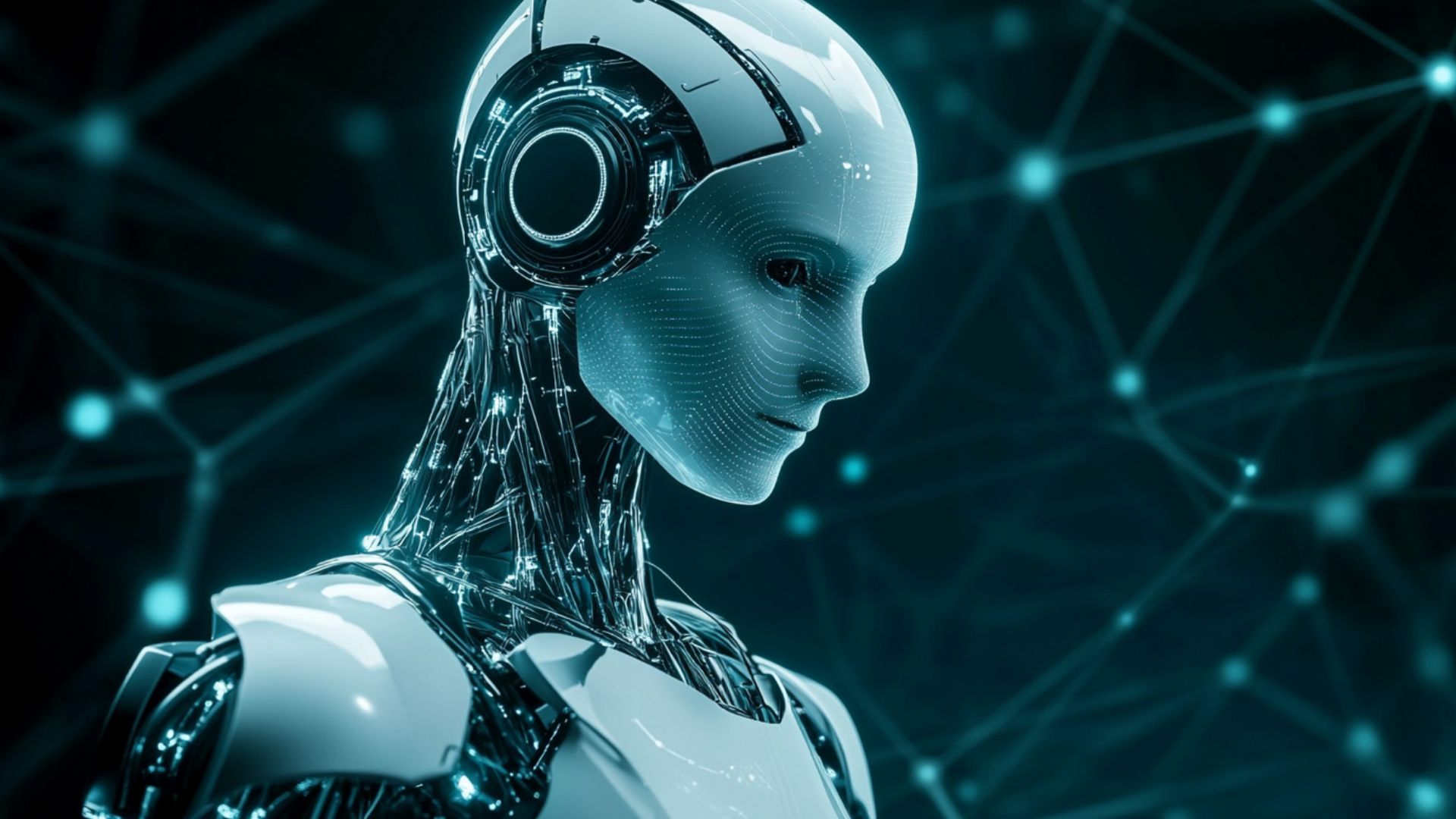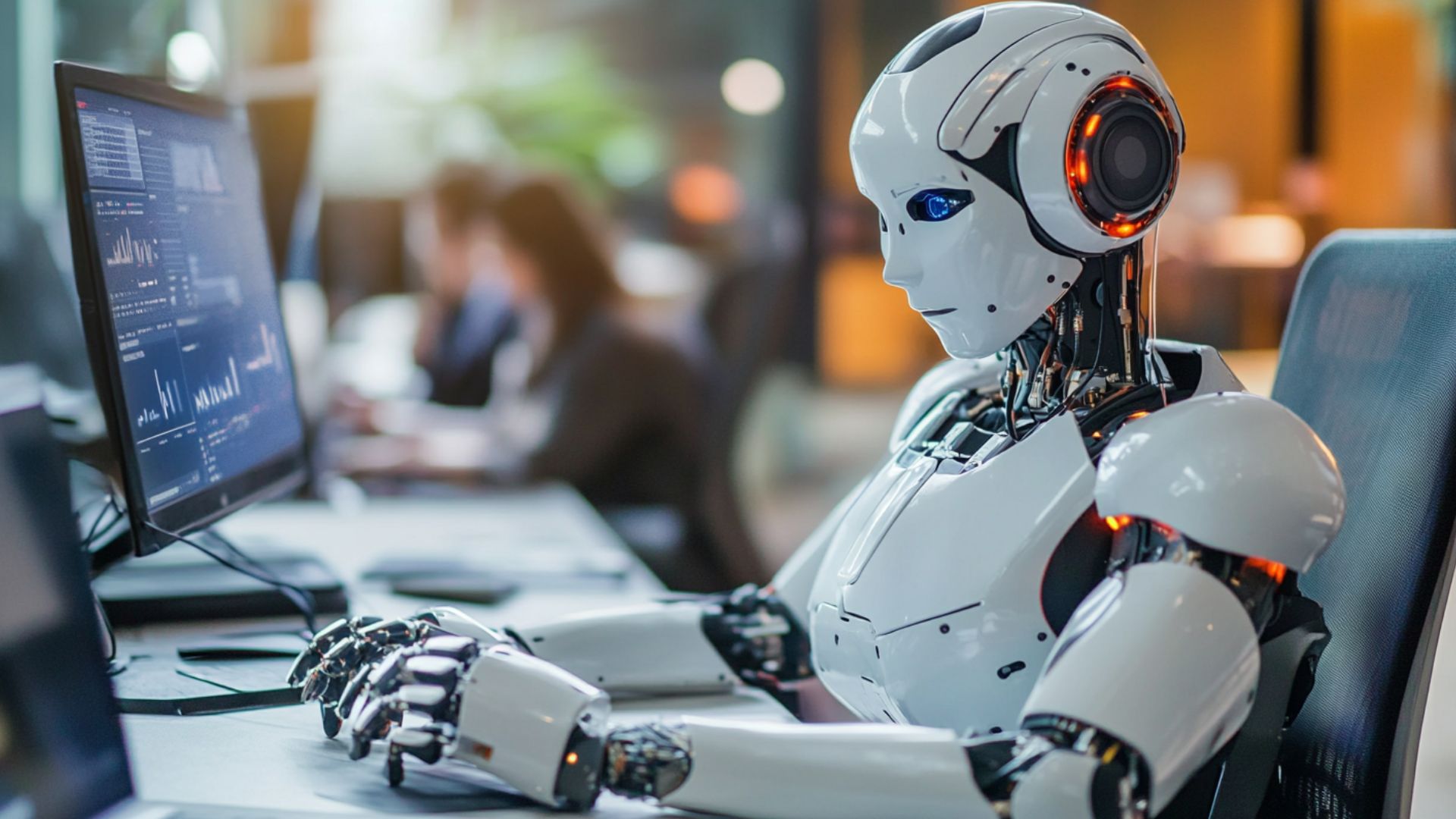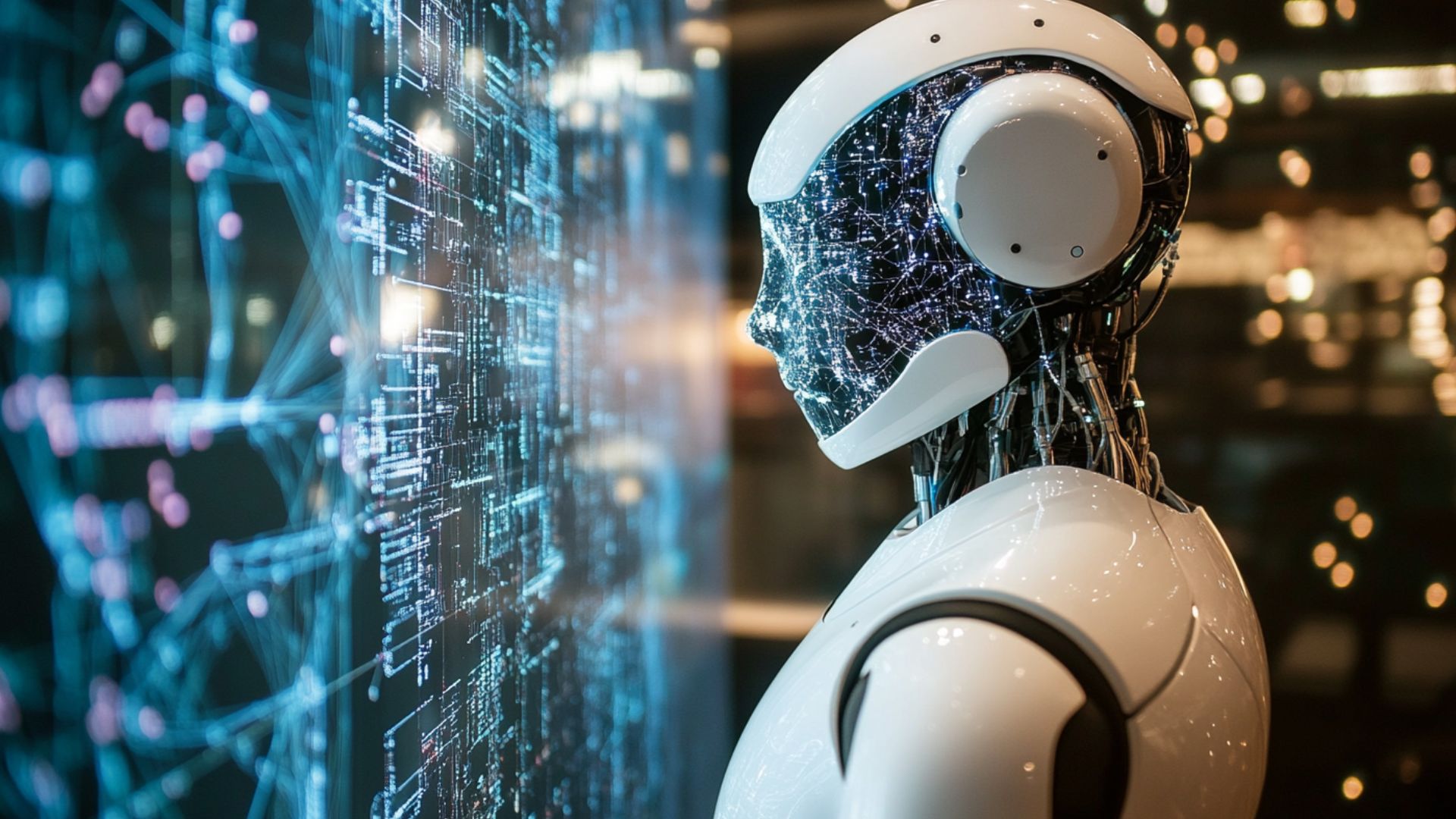Artificial Intelligence vs. Intelligent Agents: Clarified by Digital Worker

Knowledge engineering and intelligent envoys are two interconnected concepts. They are primary in shaping the sphere of web workers. AI refers to the broader field of creating machines adept at performing tasks. They typically require human intellect. This encompasses various high-tech. They include ML, NLP, and computer vision. On the other hand, these agents are entities within the AI framework designed to perceive their milieu. Also, it aims to take action to achieve specified goals.
Web workers operate in the digital realm as a subset of intelligent envoys. They perform tasks autonomously or collaboratively with human workers. Our guide clarifies the relationship and distinctions between artificial intelligence and intelligent agents. It is in the context of digital employees. Comprehending these terms and their implications is pivotal. So we can better appreciate the rapidly evolving area of technology-driven work environments. We have prepared for you all the necessary information concerning this topic.
Understanding Artificial Intelligence
Knowledge engineering is a field of computer science. It aims to create machines capable of intelligent behavior. Its significance in modern technology is vast, influencing diverse apps:
- Broad Apps: AI is helpful in healthcare for diagnostics and finance for fraud detection. Autonomous vehicles help to navigate, demonstrating their versatility.
- Technological Significance: MI enhances potency and automates complex tasks. It improves decision-making processes, driving innovation in various industries.
- Encompassing Techs: ML systems use algorithms to learn patterns from data and make predictions or decisions. NLP enables machines to understand, interpret, and generate human language. Computer vision systems interpret and make decisions based on visual data, mimicking human vision.
- Autonomous Agents: These are entities capable of perceiving the environment. Also, they can take action to achieve specific goals.
- Types of Agents in Artificial Intelligence: Reactive agents act based on predefined rules. They don’t maintain an internal state. Deliberative ones plan actions based on an internal model of the environment. Learning agents adapt and improve their behavior through experience or data analysis. Hybrid envoys combine elements of reactive and deliberative agents for adaptability.
Comprehending the area of artificial intelligence and intelligent agents involves severe facts. Among them are recognizing the broad apps, technological impact, and various types of envoys. They contribute to the continuous evolution of this dynamic field.
The Role of Intelligent Agents in AI
Autonomous envoys in MI are entities designed to perceive their milieu. They act autonomously or semi-autonomously to achieve specific goals. These agents are pivotal in automating resolution-making processes within the AI spectrum. Digital workers can process information from their surroundings. It may make decisions and execute actions to achieve predefined objectives. It doesn't matter whether operating in a fully autonomous mode or collaborating with human input. Intelligent agents in AI enhance potency and effectiveness in various apps. The purpose of such agents is to navigate complex scenarios.
Also, their goal is to adapt to changing environments and respond to dynamic challenges. These agents contribute to streamlining operations in manufacturing, finance, and healthcare. Also, they optimize resource allocation and improve overall resolution-making. Knowing the role of intelligent workers is crucial for harnessing the full potential of AI in automating tasks. Also, it is vital in enhancing decision processes. Comprehending the role of an intelligent agent in AI is pivotal. It emphasizes its significance in automation decision-making. Also, it paves the way for more efficient and intelligent systems across diverse domains.
Agent Definition in AI
In MI, Envoy refers to a computational entity or system that operates within a milieu. It can perceive its surroundings and take action to achieve predefined objectives. Crucial characteristics and functionalities of agents definition in AI include:
- Autonomy: Agents can operate independently, making decisions and taking actions. They may do it without direct human intervention.
- Sensing: They can perceive their environment's information through sensors or data inputs.
- Acting: Envoys may execute actions based on their internal decision-making processes. It influences the milieu.
- Goal-oriented: Intelligent envoys can achieve specific goals, adapting their actions to optimize outcomes.
- Learning: Some agents incorporate learning mechanisms. They allow them to improve performance over time through experience or data analysis.
The perception-action cycle is a fundamental concept in the context of agent definition in AI. It involves the continuous loop of sensing the environment, processing info, and making decisions. Also, it includes executing actions and creating a dynamic interaction. It is between the agent and its surroundings. Knowing the intricacies of the envoy definition in MI and the perception-action cycle is essential. It is pivotal for grasping the functionality and significance of intelligent envoys in MI.
Different Types of Agents in AI
Intelligent agent types in MI vary based on design, capabilities, and functionalities. Here are several notable types:
Reactive Agents:
- Functionality: Reacts directly to environmental stimuli without maintaining an internal state.
- Application: Suitable for tasks with well-defined, predictable responses, such as games.
Deliberative Agents:
- Functionality: Possesses an internal model of the environment. They plan actions based on a thoughtful decision-making process.
- Application: Ideal for complex scenarios where planning and reasoning are crucial. Among them are autonomous vehicles.
Hybrid Agents:
- Functionality: Combines elements of reactive and deliberative agents, offering adaptability and potency.
- Application: Versatile and suitable for tasks. They require both quick reactions and strategic planning.
Learning Agents:
- Functionality: Acquiring knowledge and adapting behavior based on experience or input.
- Application: Well-suited for tasks where performance improvement through learning is essential. Among them is speech recognition.
Knowing these intelligent agent types is essential. It helps to tailor AI systems to specific requirements. The choice of agent type depends on the task's nature and the environment's complexity. Also, it hinges on the desired level of autonomy and adaptability.
Designing Intelligent Agents for Digital Workers

The projection of these envoys involves a strategic process. It helps to optimize performance and potency. Here are the crucial steps:
- Task Identification: Define specific tasks. The intelligent agents will handle it within the digital worker framework.
- Agent Type Selection: Choose the appropriate types of intelligent agents based on the nature of the tasks. Consider reactive, deliberative, hybrid, or learning agents depending on requirements.
- Integration with AI Technologies: Integrate the selected agent seamlessly with AI technologies. They ensure compatibility and leverage ML or NLP as needed.
Considerations for effective operation within digital worker frameworks include:
- Adaptability: Ensure that agents can adapt to changing tasks and dynamic environments.
- Scalability: Designing intelligent agents can scale with the growing demands of work environments.
- Collaboration: Facilitate collaboration between digital workers and intelligent agents for enhanced efficiency.
Thoughtful consideration and implementation of these factors are pivotal. The process of designing such agents for digital workers can lead to more productive workflows.
Intelligent Robotics and Autonomous Agents
The synergy between intelligent robotics and autonomous agents represents a reformative force. It is pivotal in various industries. Autonomous agents, within the realm of robotics applications, showcase remarkable capabilities:
- Navigation: Autonomous agents can navigate complex environments using sensors and decision-making algorithms. They avoid obstacles and adapt to changing surroundings.
- Decision-Making: In intelligent robotics, autonomous agents make decisions in real-time. They analyze data from the environment and select actions that align with predefined objectives.
- Learning in Dynamic Environments: These agents leverage ML to adapt and improve performance over time. They can learn from experiences, optimizing their behavior in dynamic and unpredictable settings.
Integration of intelligent robotics and autonomous agents is pivotal. It enhances automation, potency, and adaptability in apps. It ranges from manufacturing and logistics to healthcare and exploration. Technology advances. So, the collaboration between intelligent robotics and autonomous agents is vital. It continues to shape new solutions for complex tasks and environments.
Web Intelligence and Intelligent Agent Technology
The fusion of web intelligence and intelligent agent technology has reformed online services. Autonomous agents play a crucial role in various web intelligence apps:
- Information Retrieval: These agents automate the process of retrieving relevant information. It is from vast online databases that ensure timely and accurate user results.
- Content Categorization: Intelligent officers categorize and organize web content through ML algorithms. They improve search accuracy and provide users with more relevant and structured information.
- User Interaction: Agents enhance user experiences by personalizing interactions and understanding user preferences. Also, they do it by adapting content recommendations based on individual behaviors.
The impact of types of intelligent agents on web techs and services is profound:
- Potency: Automation of information retrieval and categorization accelerates data processing. It makes web services more efficient.
- Personalization: Intelligent agents contribute to personalized user experiences. They tailor content and recommendations to individual preferences.
- Innovation: The integration of these workers sparks innovation in web technologies. They are leading to advancements in search algorithms, NLP, and user interface design.
The synergy between web intelligence and intelligent agent technology is revolutionizing. It showcases how we navigate and interact with the vast wealth of information available on the internet. Such synergy contributes to a more intelligent, efficient, and user-friendly online experience.
Artificial Intelligence and Intelligent Agents: A Synergistic Relationship

This collaboration between forms a powerful alliance. It is mainly in the development of advanced and efficient digital workers. This synergistic relationship between artificial intelligence and intelligent agents is generally characterized by:
- Analytical Capabilities of AI: It brings analytical prowess to the table, processing vast amounts of data. MI recognizes patterns and extracts valuable insights. This analytical foundation serves as a cornerstone for intelligent agents.
- Decision-Making Processes of Intellect Agents: They leverage the analytical outputs. They are from AI to make informed decisions. They possess the autonomy to act based on their internal models and predefined objectives. Also, they navigate and interact within their designated environments.
- Efficient Digital Workers: AI's analytical capabilities and agents' decision-making processes are vital. Such collaboration results in the creation of digital workers who are not only efficient but also adaptive. They can perform complex tasks, learn from experiences, and adapt to dynamic environments.
The synergy between artificial intelligence and intelligent agents enhances automation. They streamline workflows and optimize decision-making in various sectors. This collaboration represents an essential advancement in the field. It paves the way for more sophisticated and capable digital workers. They contribute to increased efficiency and productivity in diverse industries.
Examples of Intelligent Agents in Action
In each of these examples, such agents embody AI principles. They use techs such as ML, NLP, and data analysis to perform their tasks effectively. Among the examples of intelligent agents in action are:
Healthcare:
- Example of Intelligent Agent: Virtual Health Assistants.
- Application: They use NLP and ML to interact with patients and answer medical queries. Also, they provide personalized health information.
Finance:
- Example of Intelligent Agent: Robo-Advisors.
- Application: Intelligent envoys in finance analyze investment data and user preferences. The market trends to offer automated, personalized investment advice and portfolio management.
Customer Service:
- Example of Intelligent Agent: Chatbots.
- Application: They use AI algorithms to understand and respond to real-time customer queries. They offer efficient and personalized support in industries ranging from e-commerce to telecommunications.
Manufacturing:
- Example of Intelligent Agent: Smart Production Systems.
- Application: Intelligent agents in manufacturing use AI to optimize production processes. Also, they apply it to check equipment health and predict maintenance needs. It contributes to enhanced operational efficiency.
Education:
- Example of Intelligent Agent: Intelligent Tutoring Systems.
- Application: Agents leverage MI algorithms to adapt learning materials and provide personalized feedback. Also, they do it to assist students in understanding and mastering various subjects.
These apps demonstrate the versatility and impact of intelligent envoys across diverse industries.
The Future of AI and Intelligent Agents in Digital Workforce Development
Technology is rapidly evolving. So, the future of different types of agents in AI holds promising trends for digital workforce development:
Advanced Personalization:
- Designing Intelligent Agents: Future agents will become even more adept at personalizing interactions. Also, they are experts in tailoring responses and tailoring workflows. This caters to users' individual preferences, improving the overall user experience.
Expanding Agent Types:
- Different Types of Agents in AI: The evolution will likely introduce new agents in artificial intelligence types. They'll blend characteristics from reactive, deliberative, and learning agents. Also, they will create more versatile and adaptable solutions for diverse tasks and industries.
Collaborative Intelligence:
- Designing Intelligent Agents: Intelligent envoys will increasingly collaborate with human workers. They'll form a cohesive ecosystem where AI and human capabilities synergize for optimal outcomes.
Enhanced Learning Capabilities:
- Different Types of Agents in AI: Types of agents in artificial intelligence are vital to know. It will evolve to have more sophisticated learning mechanisms. They enable them to adapt to novel tasks and environments without extensive reprogramming.
Integration with Emerging Technologies:
- Designing Intelligent Agents: Future envoys will likely integrate with AR and VR. They provide more immersive and interactive experiences within the digital workforce.
The evolution of web workers is intricately tied to advancements in designing such agents. Also, it explores different types of agents in AI. MI high-techs progress. So, the digital workforce will become more sophisticated and capable of handling complex tasks. It ushers in a new era of potency and innovation.
Conclusion
The digital worker generally clarifies the alliance between MI and autonomous envoys. It illustrates a dynamic interplay in the tech sector. The process of designing intelligent agents is crucial. It is vital for optimizing their performance within the broader realm of AI. Digital workers have rapidly evolved through the passing years. So, the integration of acumen agents contributes to streamlined workflows. Also, it leads to enhanced potency and individualized user conductions. This symbiotic relationship underscores the significance of these agents in MI. Also, it emphasizes this broader field.
FAQ
AI is the simulation of human intelligence in machines. It enables them to perform tasks that typically require human understanding and decision-making.
Intelligent agents are computational entities that operate within an environment. They can perceive their surroundings and take action to achieve specific goals. They are a subset of AI.
Digital Workers leverage intelligent agents to automate tasks and make decisions. Also, they use them to enhance overall efficiency in various workflows.


